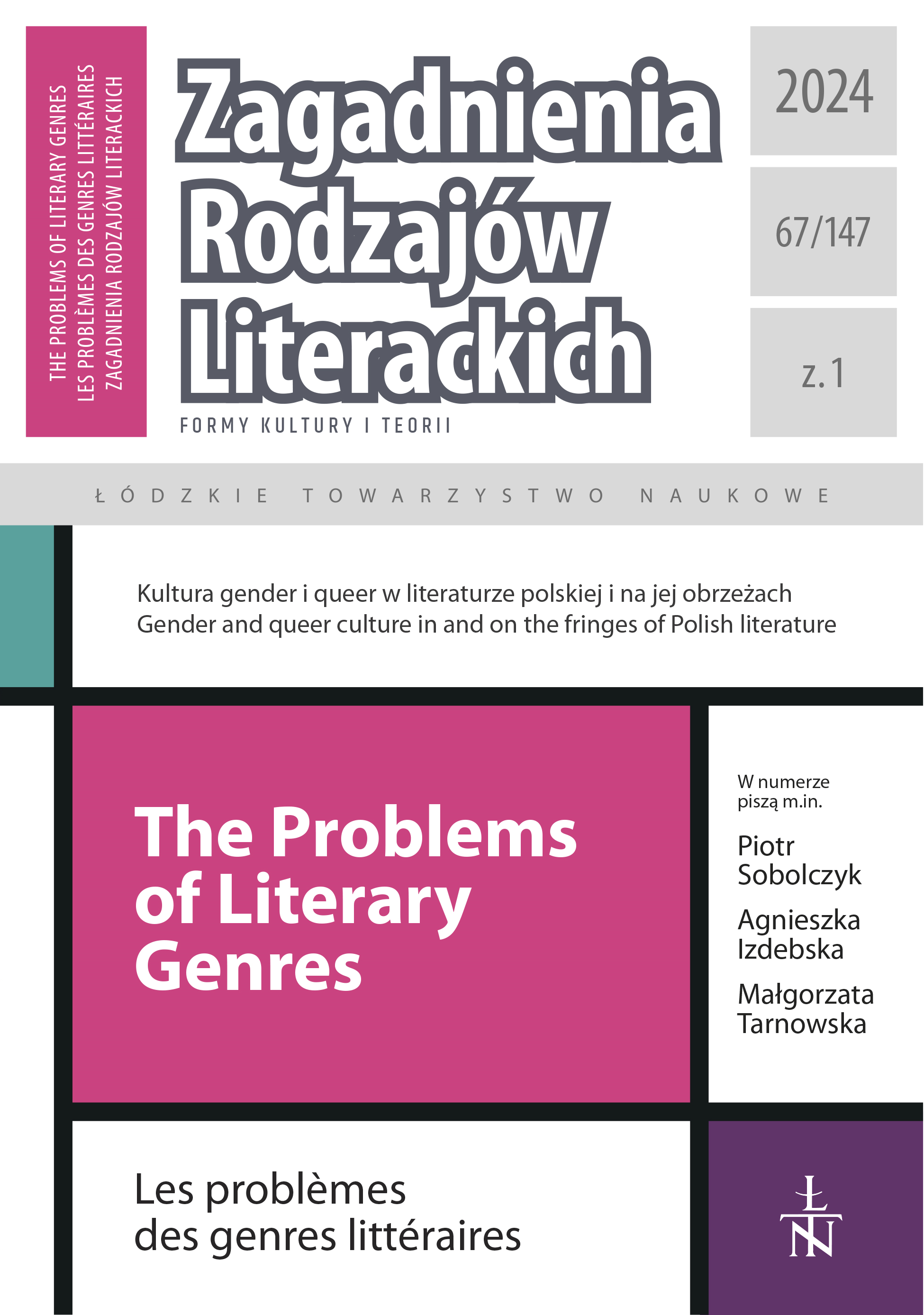Queerowe konteksty literatury polskiej
DOI:
https://doi.org/10.26485/ZRL/2024/67.1/1Słowa kluczowe:
queer; gender; Polish literature; literary canonAbstrakt
The text concerns the application of concepts and terms created within queer studies to a Polish context, especially in literary studies. The issue discussed by participants in the debate on the possibility of assimilating queer studies into the Polish cultural tradition is the question of the differences between the ground on which it was created and Polish political and social conditions. After 1989, and later after the publication of Michał Witkowski’s Lubiewo (2003), many texts describing the experience of non-heteronormativity were written in Poland. Equally important was the parallel discussion around queer studies and various conceptions of queer itself. No matter how controversial these issues remain, the volume of “The Problems of Literary Genres” [“Zagadnienia Rodzajów Literackich”] is a testimony to the usefulness of using the conceptual apparatus of queer studies to analyze specific works of Polish literature — both the newest ones and those created in the first decades of the 20th century. This usefulness comes down not only to the reinterpretation of canonical works of Polish literature but also enables the analysis of texts that were created as an expression of the queer sensitivity of their authors.
Liczba pobrań
Opublikowane
Jak cytować
Numer
Dział
Licencja
Prawa autorskie (c) 2024 Łódzkie Towarzystwo Naukowe i autorzy

Utwór dostępny jest na licencji Creative Commons Uznanie autorstwa 4.0 Międzynarodowe.







